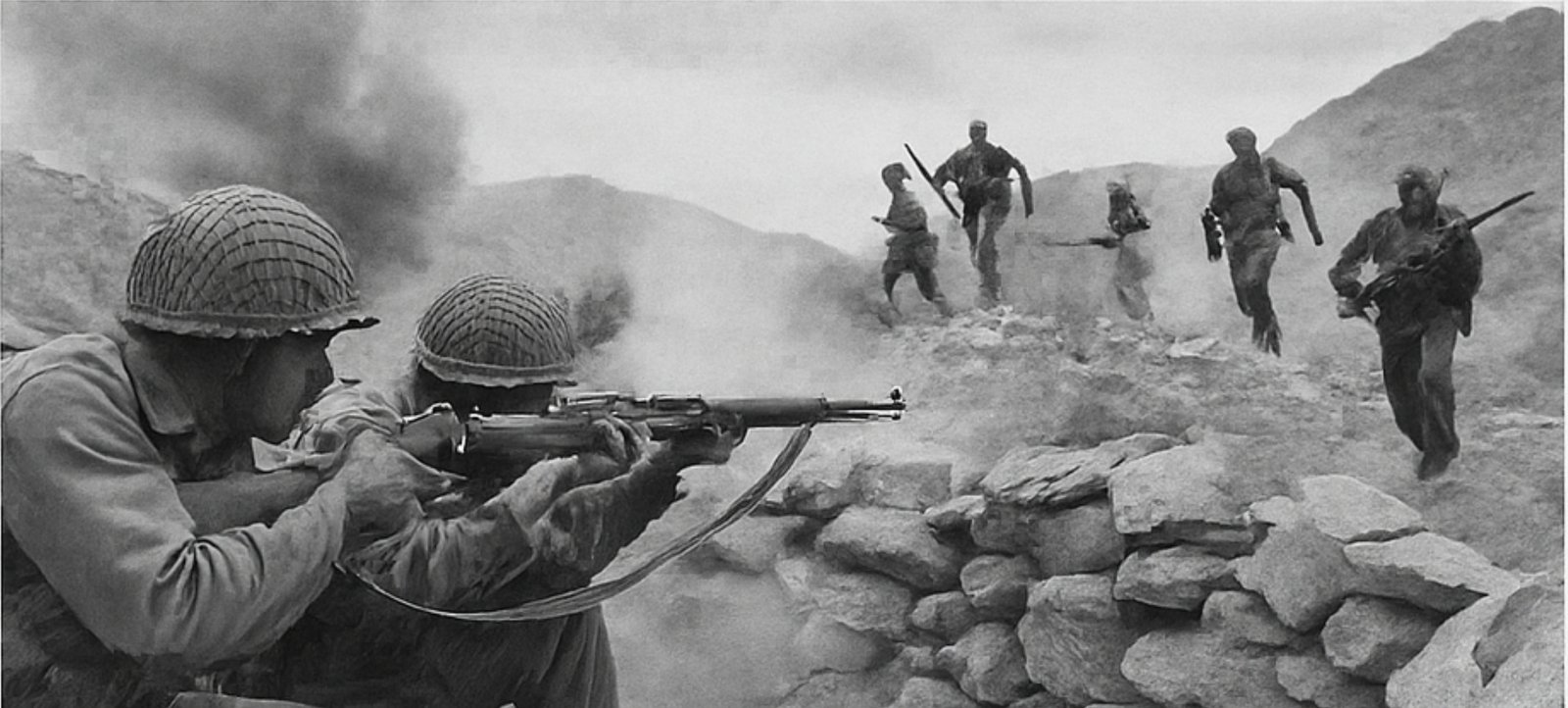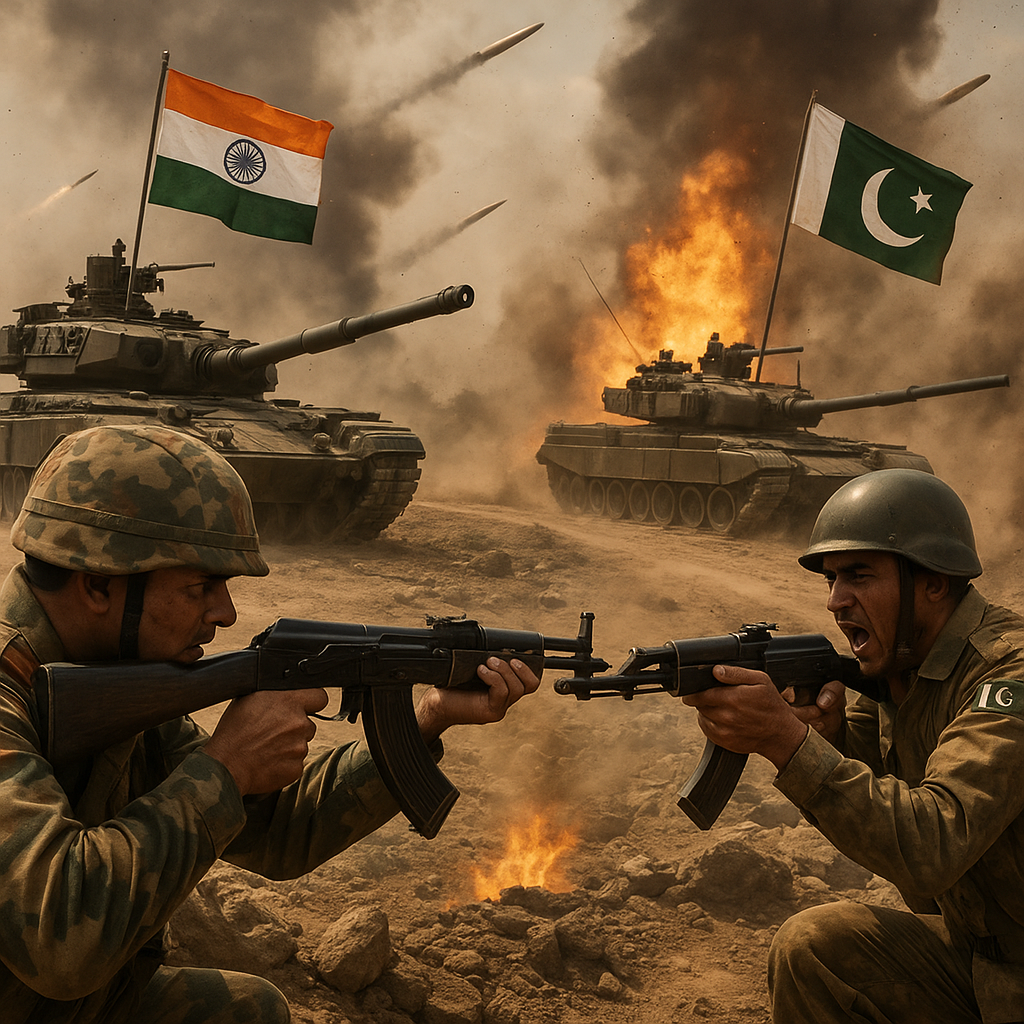The India-Pakistan wars are a series of military conflicts that have shaped the geopolitics of South Asia since the two nations gained independence from British colonial rule in 1947. The root causes of these wars lie in historical, territorial, and religious differences, particularly surrounding the region of Jammu and Kashmir. This article provides a brief overview of the major wars between India and Pakistan and their implications.
- The First Indo-Pak War (1947-1948)
The first war broke out shortly after the partition of British India and the creation of India and Pakistan. The princely state of Jammu and Kashmir became a contentious issue as its ruler chose to accede to India, despite having a majority Muslim population. Pakistan disputed this decision, leading to armed conflict. The war ended in 1948 with a United Nations-brokered ceasefire, resulting in the division of Kashmir along the Line of Control (LoC). However, the issue of Kashmir’s sovereignty remains unresolved. - The Second Indo-Pak War (1965)
Tensions flared again in 1965 when Pakistan launched “Operation Gibraltar,” aiming to incite rebellion in Indian-administered Kashmir. This escalated into full-scale war, with intense battles fought in Kashmir and Punjab. The war ended with the Tashkent Agreement, mediated by the Soviet Union and the United States, but failed to resolve the underlying disputes. - The Third Indo-Pak War (1971)
The 1971 war was rooted in Pakistan’s internal political and ethnic tensions, particularly in its eastern region, which later became Bangladesh. India’s intervention, driven by a humanitarian crisis and the influx of millions of refugees, played a crucial role in the war. The conflict resulted in Pakistan’s defeat and the creation of Bangladesh, marking a significant geopolitical shift in South Asia. - The Kargil War (1999)
The Kargil conflict erupted when Pakistani soldiers and militants infiltrated Indian territory in the Kargil sector of Jammu and Kashmir. The war, fought in challenging mountainous terrain, ended with India regaining its territory. It exposed the fragility of peace efforts, even after the Lahore Declaration earlier that year.
Implications of the Wars
The wars between India and Pakistan have had profound consequences on the region:
G: Both countries have diverted substantial resources to defense, hindering economic development.
Political Dynamics: The wars have fueled nationalism and militarization in both nations.
Political Dynamics: The wars have only deepened the Kashmir dispute, perpetuating violence and instability in the region.
International Mediation: External powers, including the UN, USA, and Russia, have often played critical roles in conflict resolution, highlighting South Asia’s strategic importance.
Moving Forward
The India-Pakistan wars underscore the urgent need for dialogue and diplomacy to resolve longstanding disputes. Confidence-building measures, trade partnerships, and people-to-people exchanges can pave the way for peace. A stable South Asia is vital not only for the region but for global security.
By examining the history of these wars, it becomes evident that the path to peace is arduous but essential for the future of India, Pakistan, and the entire South Asian subcontinent.

Enjoy
20% Off


Hello